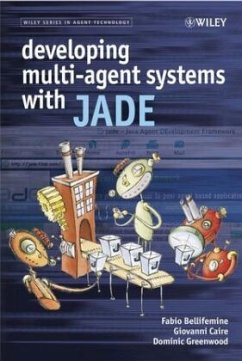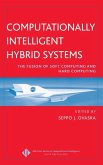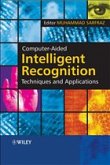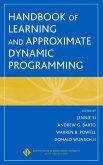Learn how to employ JADE to build multi-agent systems!
JADE (Java Agent DEvelopment framework) is a middleware for the development of applications, both in the mobile and fixed environment, based on the Peer-to-Peer intelligent autonomous agent approach. JADE enables developers to implement and deploy multi-agent systems, including agents running on wireless networks and limited-resource devices.
Developing Multi-Agent Systems with JADE is a practical guide to using JADE. The text will give an introduction to agent technologies and the JADE Platform, before proceeding to give a comprehensive guide to programming with JADE. Basic features such as creating agents, agent tasks, agent communication, agent discovery and GUIs are covered, as well as more advanced features including ontologies and content languages, complex behaviours, interaction protocols, agent mobility, and the in-process interface. Issues such as JADE internals, running JADE agents on mobile devices, deploying a fault tolerant JADE platform, and main add-ons are also covered in depth.
Developing Multi-Agent Systems with JADE:
Comprehensive guide to using JADE to build multi-agent systems and agent orientated programming.
Describes and explains ontologies and content language, interaction protocols and complex behaviour.
Includes material on persistence, security and a semantics framework.
Contains numerous examples, problems, and illustrations to enhance learning.
Presents a case study demonstrating the use of JADE in practice.
Offers an accompanying website with additional learning resources such as sample code, exercises and PPT-slides.
This invaluable resource will provide multi-agent systems practitioners, programmers working in the software industry with an interest on multi-agent systems as well as final year undergraduate and postgraduate students in CS and advanced networking and telecoms courses with a comprehensive guide to using JADE to employ multi agent systems.
With contributions from experts in JADE and multi agent technology.
Hinweis: Dieser Artikel kann nur an eine deutsche Lieferadresse ausgeliefert werden.
JADE (Java Agent DEvelopment framework) is a middleware for the development of applications, both in the mobile and fixed environment, based on the Peer-to-Peer intelligent autonomous agent approach. JADE enables developers to implement and deploy multi-agent systems, including agents running on wireless networks and limited-resource devices.
Developing Multi-Agent Systems with JADE is a practical guide to using JADE. The text will give an introduction to agent technologies and the JADE Platform, before proceeding to give a comprehensive guide to programming with JADE. Basic features such as creating agents, agent tasks, agent communication, agent discovery and GUIs are covered, as well as more advanced features including ontologies and content languages, complex behaviours, interaction protocols, agent mobility, and the in-process interface. Issues such as JADE internals, running JADE agents on mobile devices, deploying a fault tolerant JADE platform, and main add-ons are also covered in depth.
Developing Multi-Agent Systems with JADE:
Comprehensive guide to using JADE to build multi-agent systems and agent orientated programming.
Describes and explains ontologies and content language, interaction protocols and complex behaviour.
Includes material on persistence, security and a semantics framework.
Contains numerous examples, problems, and illustrations to enhance learning.
Presents a case study demonstrating the use of JADE in practice.
Offers an accompanying website with additional learning resources such as sample code, exercises and PPT-slides.
This invaluable resource will provide multi-agent systems practitioners, programmers working in the software industry with an interest on multi-agent systems as well as final year undergraduate and postgraduate students in CS and advanced networking and telecoms courses with a comprehensive guide to using JADE to employ multi agent systems.
With contributions from experts in JADE and multi agent technology.
Hinweis: Dieser Artikel kann nur an eine deutsche Lieferadresse ausgeliefert werden.








